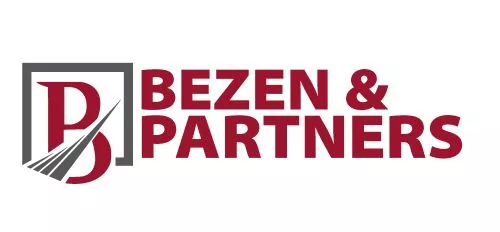Introduction
The Regulation amending the Electricity Market Licensing Regulation was published in the Official Gazette dated 9 July 2019 and numbered 30826 (the "Amending Regulation"). The Amending Regulation introduces a new online platform which will allow licensing applications to be made online. Following a brief transition period, currently scheduled to expire on 30 November 2019, electronic submissions will be mandatory for certain categories of applications. The details of such new online system have been determined under EMRA's Decision published in the Official Gazette dated 6 July 2019 and numbered 30823.
Scope of the online system
Following expiry of the transition period at the end of November 2019, applicants will be obliged to submit the following applications electronically through the EMRA Application System:
- Preliminary licence applications, amendments and terminations, merger and de-merger approvals;
- Generation licence applications, amendments and terminations, merger and de-merger approvals, facility/project transfers;
- Supply licence applications, amendments and terminations; and
- Renewable Energy Support Mechanism (YEKDEM) applications.
However, applications for the following categories licences and approvals will continue to be made physically through paper-form submissions:
- Transmission licences;
- Distribution licences;
- Distribution licences for organised industrial zones;
- Preliminary licences and generation licences for organised industrial zones;
- Licences for market operations; and
- Preliminary licences and generation licences for nuclear energy.
The Online Application Process
In order for a legal entity to make submissions through the EMRA Application System, there must be at least one representative real person of such legal entity with authority to carry out online applications.
Such legal entity must submit a petition to EMRA to register the identification information of such representative with the EMRA Application System.
A legal entity can either appoint a person with general authority to represent and bind itself for all EMRA-matters or a third party representative with limited power with respect to a particular, or a particular category of, applications and transactions.
Access to the EMRA Application System will be granted through the e-State (e-Devlet) password or through electronic or mobile signature. Applications will be made by way of entering the necessary information and uploading necessary documentation electronically to the EMRA Application System. Any uploaded documentation will need to bear, as appropriate, an electronic or mobile signature.
Pursuant to the Amending Regulation, preliminary licensees and licensees are obliged to obtain an address through the National Electronic Notification System, an online platform established and operated by the National Postal Services Company (PTT), within six months as of the effective date of the Amending Regulation (falling on 9 January 2020).
Other Amendments
Whilst the majority of the changes introduced by the Amending Regulation concern the mechanics of the new online application system, there are other notable amendments regarding preliminary licence applications for power plants based on solar and wind energy and licence amendment fees.
Additional wind and solar data
Pursuant to Article 2 of the Amending Regulation, for wind power plants, applicants must submit to EMRA wind measurement data which needs to have been collected within the last eight years and include the data for at least one year without any interruption.
For solar power plants, solar measurement data which needs to have been collected within the last eight years and include the data for at least one year (provided that at least half year is measured on the project site) without any interruption must be submitted to EMRA.
In both cases, the previous requirement was for data to cover a period of five years.
Remedy for missing documents
Prior to the Amending Regulation, preliminary licence applications filed for solar and wind power were rejected if there was a missing document.
The Amending Regulation provides applications with a 15-day period to complete missing documentation.
Amendment fees
Article 12 of the Amending Regulation also sets out that, in case of a licence amendment application pertaining to the same information included in more than one preliminary licence/licence of a legal entity, such legal entity will only be required to pay one licence amendment fee.
Additional Amendments Made in the Electricity Market in August 2019
Amendments in the licensing process
The Electricity Market Licensing Regulation published in the Official Gazette dated 2 November 2013 and numbered 28809 (the "Licensing Regulation") has been amended once again with the Regulation amending the Electricity Market Licensing Regulation published in the Official Gazette dated 23 August 2019 and numbered 30867 ("New Amendment Regulation"). The main changes introduced with the New Amendment Regulation are as follows:
- The description of "indigenous mines" (yerli madenler) are included and the wording of the relevant provisions has been changed accordingly;
- Construction plans for power plants must now be "finalised" instead of being "approved" during the preliminary licence period;
- Hydroelectric power plants are no longer required to obtain a construction permit during the preliminary licence period;
- For applications pertaining to wind energy, an approval must be obtained in accordance with the Regulation on Forbidden Military Zones and Security Zones;
- The Licensing Regulation now makes a distinction between "electrical installed power capacity" and the "mechanical installed power capacity". Accordingly, pursuant to Article 18, while it is not possible to increase the electrical installed power capacity during the preliminary licence period for the generation facilities based on renewable energy, such power plants are still able to increase their mechanical installed power capacity during the preliminary licence period. However, pursuant to Provisional Article 29 of the Licensing Regulation, such rule will not apply to the capacity increase applications approved by EMRA before 28 February 2019;
- Pursuant to Article 18 of the Licensing Regulation, the grid connection point and the relevant connection area must remain the same in case of a change in the project site. For any application for changing the site of hydroelectric power plants, the decision of the State Hydraulic Works must also be obtained;
- According to Article 57 of the Licensing Regulation which sets out the terms and conditions for share transfers, direct or indirect share transfers arising from the exercise of the pre-emptive rights which do not result in a change of control, are not subject to EMRA's prior approval anymore; and
- Pursuant to Article 30 of the Licensing Regulation, relevant progress reports must now be submitted to EMRA until the actual provisional acceptance date of the generation facility, instead of the planned completion date of the generation facility determined in the relevant generation licence.
Amendments to renewable power plants
In addition to these amendments, the Regulation amending the Tender Regulation for Preliminary Licence Applications regarding Energy Generation from Wind or Solar Power Plants was published in the Official Gazette dated 23 August 2019 and numbered 30867 also. With such amendment, the participation fee that has been paid in accordance with the rules and regulations applicable prior to the enactment of this regulation during the initial licensing stage will also be paid in case of an increase in the capacity of the generation facility.
Furthermore, the Regulation amending the Regulation on Documentation and Support of Electricity Generation Based on Renewable Energy Resources was published in the Official Gazette dated 23 August 2019 and numbered 30867 as well. Such regulation changed the coefficients used in the YEKDEM calculations, introduced a new calculation method to be used for YEKDEM and sets out that applications for the registration YEKDEM will now be made electronically by way of using an electronic signature.
In addition to this, the Regulation on Documentation and Support of Electricity Generation Based on Renewable Energy Resources now introduces an important development concerning the installed power capacity increases and states that licensees whose capacity increase applications were approved by EMRA following 28 February 2019 cannot benefit from YEKDEM for such increased amount. For such power plants, the installed power capacity amounts stated in their respective licences will be applicable for the calculation of the relevant YEKDEM support amounts.
Conclusion
In line with recent technological innovations and the market needs, the electricity market legislation has now evolved once again. EMRA aims to improve processing times and improve information security through the online system Still, the response of the market and the efficiency of such online system are yet to be seen.
The content of this article is intended to provide a general guide to the subject matter. Specialist advice should be sought about your specific circumstances.




